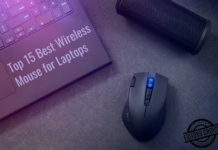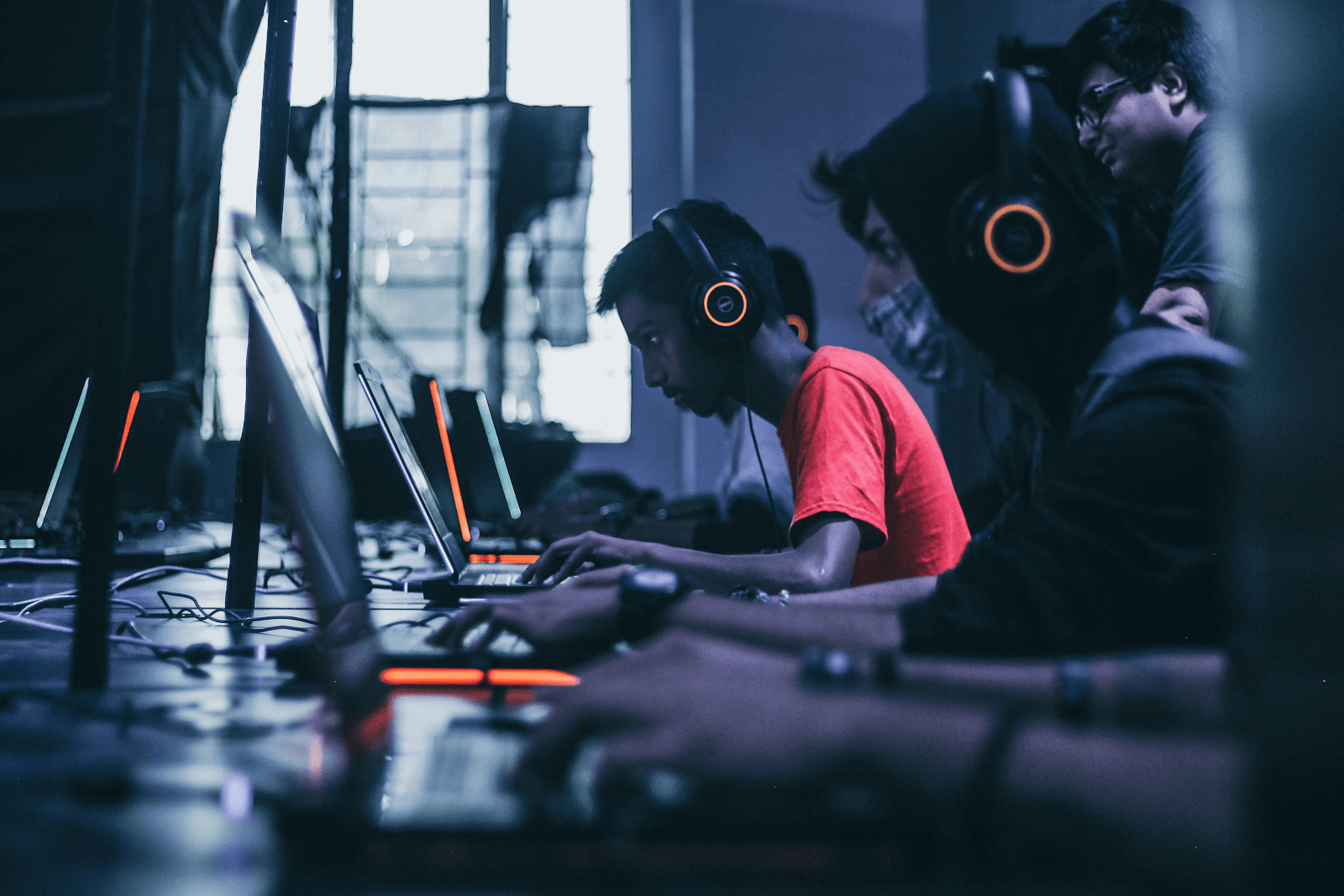Looking for the perfect gaming laptop processor to take your gaming experience to the next level? Well, you’re in luck because we’ve got all your burning questions about top gaming laptop processors answered.
Whether you’re a casual gamer or a hardcore enthusiast, the processor is a key component that can make or break your gaming performance. But fear not, we’re here to help you navigate through the sea of options and find the best processor for your needs.
So, let’s dive in and uncover the secrets behind the top gaming laptop processors that will leave you wanting more.
Table of Contents
Key Takeaways
- The processor is the most important component in a gaming laptop, responsible for handling calculations and instructions for smooth gameplay.
- A powerful processor with high clock speed, multiple cores, and a large cache size is essential for handling demanding graphics and processing requirements in gaming.
- Choosing a processor that strikes a balance between performance and power efficiency is crucial for optimal gaming laptop performance.
- Regular maintenance and optimization techniques such as cleaning vents, setting power plans to ‘High Performance’, closing unnecessary background applications, and keeping the operating system and drivers up to date can help optimize processor performance in gaming laptops.
Importance of Gaming Laptop Processors
When it comes to gaming laptops, the importance of processors can’t be overstated. The processor, also known as the CPU (Central Processing Unit), is the brain of your gaming laptop. It handles all the calculations and instructions necessary for your games to run smoothly and efficiently. A powerful processor ensures that your gaming laptop can handle the demanding graphics and processing requirements of modern games.
The processor determines the speed and performance of your gaming laptop. A faster processor will allow for quicker loading times, smoother gameplay, and better multitasking capabilities. It can also impact the frame rate and graphics quality of your games. A high-end processor, such as those from Intel’s Core i7 or AMD’s Ryzen series, will provide you with the best gaming experience.
It’s important to note that the processor alone isn’t enough to guarantee a great gaming experience. Other factors, such as the graphics card, RAM, and storage, also play a significant role. However, the processor serves as the foundation for your gaming laptop’s performance.
When choosing a gaming laptop, consider the processor’s clock speed, number of cores, and cache size. These specifications will give you an idea of the processor’s capabilities. Ultimately, investing in a powerful processor will ensure that you can enjoy your favorite games without any lag or performance issues.
Factors to Consider When Choosing a Processor
To choose the right processor for your gaming laptop, consider these important factors. The processor is the heart of your gaming laptop, responsible for executing tasks and ensuring smooth gameplay. When selecting a processor, you need to take into account several key factors that will impact your gaming experience.
| Factor | Description | Example |
|---|---|---|
| Clock Speed | The speed at which the processor can execute instructions. Higher clock speeds result in faster processing times. | Intel Core i7-9750H (2.6GHz base clock, up to 4.5GHz boost clock) |
| Number of Cores | The number of processing units within the processor. More cores allow for better multitasking and improved performance. | AMD Ryzen 9 5900HX (8 cores, 16 threads) |
| Cache Size | The amount of high-speed memory available on the processor. A larger cache size helps in storing frequently used data. | Intel Core i9-10900K (20MB SmartCache) |
| Power Consumption | The amount of power the processor requires to operate. Lower power consumption results in longer battery life. | AMD Ryzen 7 4800HS (35W TDP) |
Consider these factors carefully to ensure that the processor you choose meets your gaming needs. A higher clock speed and more cores will provide better performance, while a larger cache size will improve data access speeds. Additionally, if you prioritize portability, opting for a processor with lower power consumption is recommended. Remember to strike a balance between performance and power efficiency to get the most out of your gaming laptop.
Top Gaming Laptop Processors for High Performance
For top-notch performance in gaming laptops, these processors stand out.
When it comes to high-performance gaming, you need a processor that can handle the demanding requirements of modern games. The Intel Core i9-10980HK is a top choice for gamers who want the best performance. With its 10 cores and 20 threads, this processor can handle even the most resource-intensive games with ease. It also has a high clock speed of up to 5.3 GHz, ensuring smooth and fast gameplay.
Another excellent option is the AMD Ryzen 9 5900HX. With its 8 cores and 16 threads, this processor delivers exceptional performance in gaming. It also has a boost clock speed of up to 4.6 GHz, allowing for quick and responsive gameplay. Additionally, the Ryzen 9 5900HX comes with AMD’s SmartShift technology, which optimizes power allocation between the CPU and GPU for maximum performance.
If you’re looking for a more budget-friendly option, the Intel Core i7-10750H is worth considering. With its 6 cores and 12 threads, this processor offers solid performance for gaming. It also has a boost clock speed of up to 5.0 GHz, ensuring smooth gameplay in most modern games.
Ultimately, the choice of processor depends on your specific needs and budget. These processors, however, are known for delivering high performance in gaming laptops, making them excellent options for gamers who desire top-tier performance.
Understanding Processor Specifications for Gaming
Understanding the specifications of a processor is crucial for choosing the right one for gaming laptops. With so many options available, it can be overwhelming to decipher the technical jargon. However, by familiarizing yourself with the key specifications, you can make an informed decision.
The first specification to consider is the clock speed, measured in gigahertz (GHz). This indicates how fast the processor can execute instructions. Generally, a higher clock speed means better performance, but it’s important to note that other factors, such as the number of cores, also play a role.
Speaking of cores, this is another important specification to consider. Cores are essentially separate processing units within the processor. The more cores a processor has, the more tasks it can handle simultaneously. For gaming, a quad-core or higher processor is recommended to ensure smooth gameplay.
Cache size is also worth considering. The cache is a small, high-speed memory within the processor that stores frequently accessed data. A larger cache can help improve performance by reducing the time it takes to retrieve data.
Lastly, you should pay attention to the thermal design power (TDP). This specification indicates the amount of heat the processor generates and the cooling system required. A higher TDP may require more robust cooling solutions to prevent overheating.
Tips for Optimizing Processor Performance in Gaming Laptops
Now let’s explore some effective ways to maximize the performance of your gaming laptop’s processor.
To optimize your processor’s performance, it’s essential to keep your laptop clean and free from dust. Regularly cleaning the vents and fans will prevent overheating, ensuring that your processor operates at its best.
Additionally, managing your laptop’s power settings can make a significant difference. By setting your power plan to ‘High Performance,’ you allow your processor to run at its maximum capacity during gaming sessions.
Another way to optimize processor performance is by closing unnecessary background applications and processes. These applications consume valuable system resources, taking away processing power from your games. Disabling startup programs can also help improve performance.
It’s also crucial to keep your laptop’s operating system and drivers up to date. Updates often include performance improvements and bug fixes that can enhance your processor’s efficiency.
Lastly, consider monitoring your processor’s temperature, as high temperatures can lead to performance throttling. Using software to monitor temperatures can help identify and address any potential overheating issues.
Frequently Asked Questions
Can I Upgrade the Processor in My Gaming Laptop?
Yes, you can upgrade the processor in your gaming laptop. However, before doing so, it is important to check if your laptop’s motherboard supports the new processor and if the upgrade is worth the cost.
How Much RAM Do I Need in Conjunction With a High-Performance Gaming Laptop Processor?
You’ll want at least 16GB of RAM to pair with a high-performance gaming laptop processor. This will ensure smooth multitasking, faster loading times, and optimal performance for your gaming sessions.
Are Gaming Laptop Processors More Expensive Than Regular Laptop Processors?
Gaming laptop processors can be more expensive than regular laptop processors. However, they offer enhanced performance and are specifically designed for gaming. It ultimately depends on your budget and the level of gaming experience you desire.
Do Gaming Laptop Processors Consume More Power and Generate More Heat Compared to Regular Laptop Processors?
Gaming laptop processors, compared to regular ones, tend to consume more power and generate more heat. This is because they are designed to handle the high demands of gaming, which require more processing power.
Are There Any Specific Software Requirements for Gaming Laptop Processors?
There aren’t any specific software requirements for gaming laptop processors. However, it’s important to have a compatible operating system and updated drivers for optimal performance. Make sure to check the manufacturer’s recommendations for any additional software needs.
Conclusion
In conclusion, choosing the right gaming laptop processor is crucial for achieving high performance in gaming. Factors such as clock speed, number of cores, and cache size should be considered when making a decision.
Some top processors for gaming laptops include Intel Core i7 and AMD Ryzen 9. Understanding the specifications of a processor can help optimize its performance.
By following these tips and selecting a suitable processor, gamers can enhance their gaming experience on a laptop.




























![4 Ways to Hack a WiFi Password on Android in 2023 [No Root] TechSaaz - how to hack a wifi password on android](https://www.techsaaz.com/wp-content/uploads/2019/08/how-to-hack-wifi-on-android-100x70.jpg)


